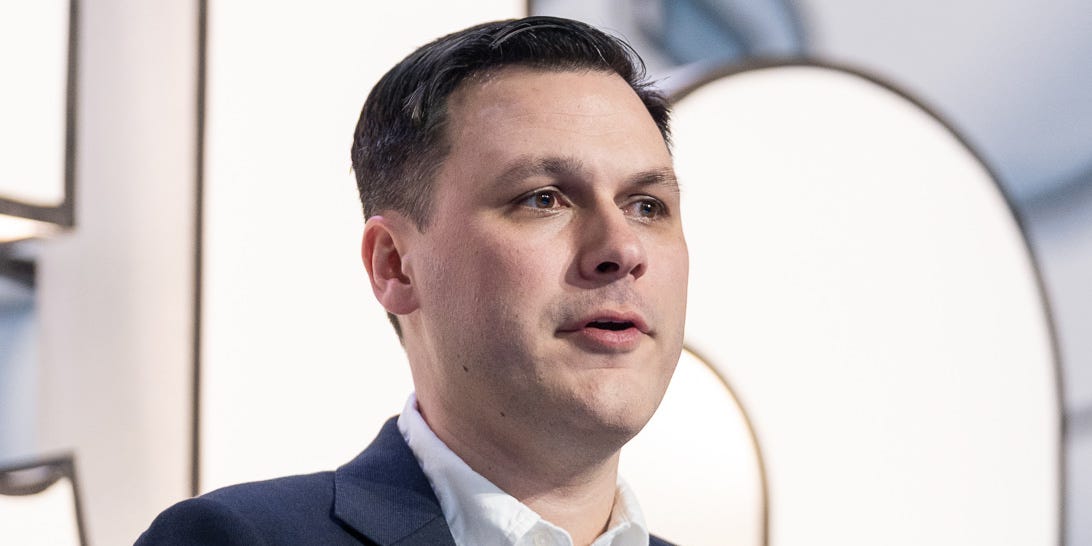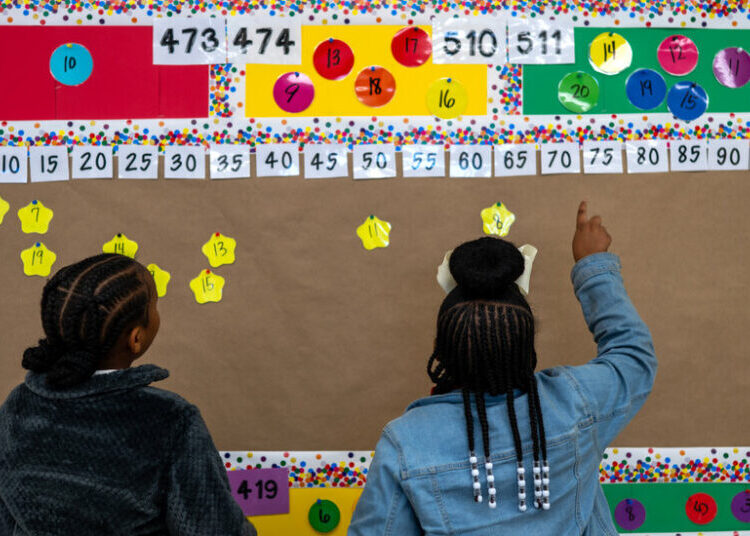michael vanarey/HLTHinc.
OpenAI is pushing into healthcare — and the AI giant could be poised to reinvent Big Tech's consumer health bets.
Tech behemoths like Google, Amazon, and Microsoft have spent decades working to give consumers control of their health data. Many of their efforts have crashed and burned. But investors and healthcare leaders think OpenAI has the right ingredients to try again.
Sources close to the company told Business Insider that OpenAI is exploring building its own consumer health tools. It's weighing several opportunities, such as creating a personal health assistant or a health data aggregator.
OpenAI's foray into healthcare marks one of its boldest moves, beyond AI infrastructure and into industry-specific software. After transforming how companies build new tech with generative AI, OpenAI is setting its sights on launching its own applications in sectors dominated by legacy enterprise giants — from sales and marketing to law, and perhaps now, medicine.
OpenAI declined to comment for this story.
The company's recent hires reflect big healthcare ambitions. OpenAI tapped Nate Gross, the cofounder of public healthtech company Doximity, to lead its healthcare strategy in June. Two months later, it brought on Instagram's Ashley Alexander as its vice president of health products. At the HLTH conference in October, Gross pointed to OpenAI's vast reach; ChatGPT gets around 800 million active users every week, many of whom come with medical questions.
That scale has healthcare founders and investors watching OpenAI closely for its next move.
"Consumers have historically gone to Google to ask their health questions, and it's clear that they're now starting to shift those questions over to LLMs to capture that knowledge base through a more conversational discovery process," said Greg Yap, a partner at Menlo Ventures, which isn't an investor in OpenAI. "I think OpenAI has a tremendous opportunity in that sector."
Several investors told Business Insider they think OpenAI could tackle a problem that's tripped up Big Tech for years: the personal health record.
Health data privacy rules and financial incentives keep your health data scattered and siloed across all the doctors you've ever been to. The idea of a personal health record is to pull that information into one place, owned and managed by the patient.
It's a difficult problem to solve, but tech hasn't stopped trying. Should OpenAI choose to build a personal health assistant with consolidated health records, it'll be competing with Alphabet's Verily, which released its own AI-powered personal health record app in October.
OpenAI has mostly stayed quiet about its plans in healthcare. But the company's explosive growth and dominance in foundational AI have some investors worried that the AI giant has a better shot than many previous Big Tech entrants at building transformative healthtech and trampling startup competition.
"Amazon's a great company, but they've been one foot in healthcare, one foot out. Microsoft, kind of the same way. We haven't seen that same type of behavior with OpenAI and Anthropic. It's been pedal all the way down, aggressive, let's look at everything, let's talk with everyone. So I'd say I view them much more as a serious potential threat," said Blake Wu, a partner at NEA, which isn't an investor in OpenAI or Anthropic.
Klaudia Radecka/NurPhoto
The personal health record problem
Jennifer Yoo, a healthcare regulatory partner at Fenwick & West, says she's seeing many companies using AI to build personal health assistants, often with the hopes of connecting a patient's medical records for tailored support.
But those companies are following a trail blazed by and littered with Big Tech's past health projects.
Microsoft, Google, and Apple have all tried to build personal health records for consumers, with mixed results. Microsoft's HealthVault launched in 2007 but shuttered in 2019 after failing to gain user traction, largely because it required patients to manually upload their health records.
Google's efforts took a similar path — its 2008 health record project died in 2012, only for the company to begin work on an electronic health records search tool a few years later that came under regulatory fire over how Google accessed and handled patient data. Apple still offers a native Health Records feature on iPhones, but that service requires hospitals to sign data-sharing agreements for patients to connect their records to the app.
"Apple's health record, and any of them that rely on us to log into every portal, download and manually share data, that's friction that keeps people from getting value from their own health data," Yap said. "AI suffers from that friction just like anyone else. You can't personalize information if you don't have the data."
The good news: some of those challenges are beginning to chip away. A recent federal ban on "information blocking" prevents hospitals from keeping health data locked up or making it hard for people to access their own records. In practice, however, the Office of the National Coordinator for Health IT has found that many hospitals still limit what patients can download.
Companies like Health Gorilla and Particle Health have stepped up as intermediaries between health systems and patients, pulling records from multiple sources, cleaning and standardizing the data, and sharing it with third-party apps at the patient's request. Yoo suggested that companies seeking to develop AI health assistants with built-in health records would be wise to partner with an intermediary to avoid the headaches of manually retrieving records.
Consumers, too, are increasingly eager than ever to control their health, including their health data. When OpenAI released GPT-5 in August, CEO Sam Altman said health was one of ChatGPT's top use cases, and bragged that the new model "can help you understand your healthcare and make decisions on your journey."
"They're already using ChatGPT or Gemini or Claude for their health questions. I think users are seeing the value of, "hey, if that also had all my long-term medical records, how much better would the information be for me?" Yoo said.
Kim Kyung-Hoon/Reuters
OpenAI's partnership approach
OpenAI isn't yet encouraging users to upload their medical data, and it's treading carefully as more users turn to ChatGPT for health information.
Viral posts circulating in early November, including a now-deleted post from prediction markets startup Kalshi, suggested that ChatGPT would no longer provide health advice. It was a misinterpretation of OpenAI's rules. The company's recently updated usage policies tell consumers not to use its products to do a doctor's job, including for diagnosis or treatment, but the policies don't preclude ChatGPT from offering general medical information. OpenAI's health AI research lead said the company hasn't changed its models.
If OpenAI steers clear of handling medical records directly, it could take a different page from Apple's health data playbook. Apple's Healthkit, launched in 2014, collects health and fitness data from third-party apps and wearables like Apple Watches and centralizes that information into its Health app.
OpenAI could partner with other health companies to collect that data. As Gross said during his HLTH panel, "I think the way that we're going to achieve the greatest amount of good is by a robust ecosystem of partners." Investors pointed to consumer lab testing companies like Superpower and Function Health as potentially attractive partners for OpenAI's health push.
While some investors are eager for OpenAI to go deep in consumer health, the AI giant is digging into the healthcare sector from multiple angles. Gross's early mandate includes co-creating new healthcare technologies with clinicians and researchers, while Alexander is building healthcare products for clinicians as well as individual consumers. OpenAI is already working with pharma giants like Eli Lilly and Sanofi on drug discovery and development, as well as with healthtech companies like Penda Health on AI-powered clinical decision support. It's also landing ChatGPT enterprise deals and other partnerships with health systems.
Meanwhile, the latest wave of healthcare VC investment has gone straight to AI tools that automate administrative work, especially for clinicians and health systems. OpenAI's provider-facing projects could challenge those bets, too, another sign of AI giants steadily encroaching on startups' territory.
Read the original article on Business Insider
The post OpenAI is weighing a move into consumer health apps appeared first on Business Insider.




